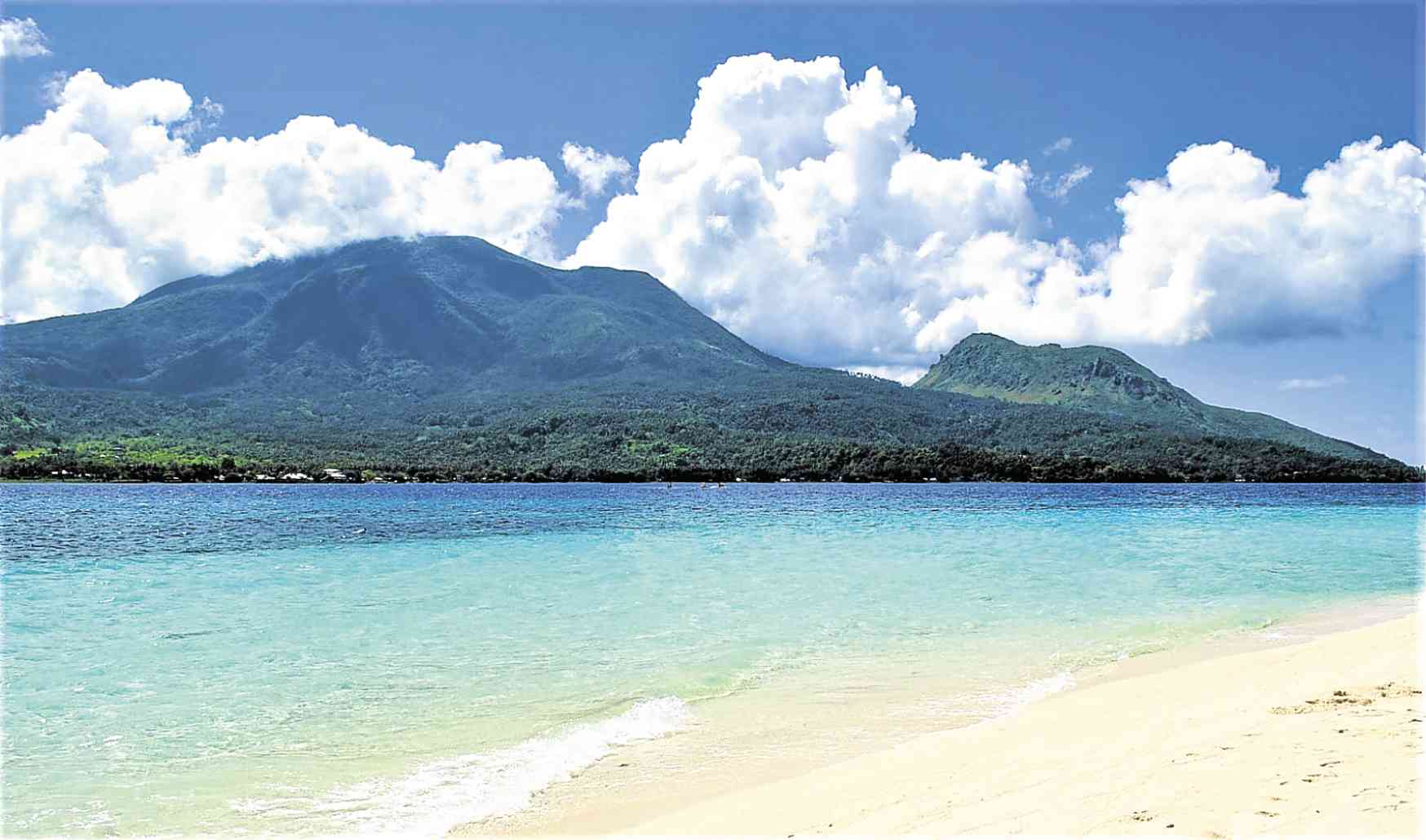Camiguin, the country’s second smallest province, has been dubbed as the “Island Born of Fire” due to its volcanic origin, as evident in the lay of its land.
Situated off Northern Mindanao, this island was said to have formed from a series of volcanic eruptions thousands of years ago. But in recent years, this once obscure getaway should be more appropriately called as the “Island on Fire” by the way it spreads the flame of its tourism allure.
A poster image of the Department of Tourism dating back to the 1990s, Camiguin recently caught fire with two viral internet videos entitled “Beyond Words,” which aptly captured its charm in a manner words cannot describe.
Paradise
Considered by many travel bugs as a proverbial paradise, Camiguin has five municipalities across a 238-sq km land area, with only a few public vehicles plying its 64-km circumferential road.
The most convenient, and most expensive, way to get there is to fly to Mambajao via Cebu. The most common route used, though, is Cagayan de Oro, where passengers take a two-hour bus or van to Balingoan town, hop on for a one-hour Ro-Ro ferry to Benoni port in Mahinog town, and finally, a 20-minute van or jeep ride to the provincial capital of Mambajao.
Another point of entry is the Jagna town in Bohol, which also has regular boat trips to Mambajao.
These tedious routes will be a thing of the past as SkyJet, a leisure boutique airline, will fly direct to the island starting May 6, from Thursday to Monday. The service will be expanded to a daily schedule starting October for the annual Lanzones Festival.
The 80-minute flight is expected to be a gamechanger as it is seen to bring in more tourists, investors and other economic opportunities. Last year, the island received a total of 750,761 foreign and Filipino tourists.
Navigating the island
Mambajao is the province’s hub for commerce, transportation and tourism establishments, where most of the accommodation facilities are located—ranging from pension houses to the more modern, amenity-laden hotels.
The most exciting way to navigate the province is onboard a habal-habal or motorcycle, which can be rented for P500 a day, so you can feel the crisp mountain air gushing through your face. If you happen to be an outdoors person, the bicycle is a cool and more physical alternative.
You can swing by the iconic spots—the immaculately White Island sandbar just a few minutes away from the mainland, the 76-meter tall Katibawasan Falls, and Ardent Hibok-Hibok Spring, believed to be therapeutic because of its volcanic water.
Take adventure to new heights, quite literally, at the aerial acrobatics aboard a single-engine Super Decathlon 8KCAB plane by Camiguin Aviation, which you can co-pilot even for a few minutes.
A new unique attraction is Treasures of Camiguin, an ancestral home-turned curio shop and gallery by social entrepreneur Cocoy Bajuyo, who introduced the idea of upcycling seaglasses or decades-old bottle fragments into elegant jewelry and ornaments. A native of Cagayan de Oro, he owns the cozy tropical-themed Balai sa Baibai, one of the most sought-after resorts in the province.
It is interesting to note that despite the upswing in the tourism industry, lot prices have remained at very reasonable rates of about P1,000 per sqm in the resort barangay of Yumbing, the jump-off point to the White Island and the nocturnal and dining enclave of the province.
The town of Catarman hosts the Sunken Cemetery, which is marked by a huge concrete cross a hundred meters from the coast, and the Walkway to the Old Volcano (Vulcan Daan), a stone staircase with 15 Stations of the Cross. The cemetery, along with the ruins of the Bonbon Church complex, were declared last year by the National Museum to be National Cultural Treasures.
Tucked in the midst of the mountain are Tuasan Falls, Sto. Niño Cold Springs, and Soda Pool where you can take a dip.
Lesser known spots
One of Camiguin’s lesser-known spots is Binangawan Waterfalls in the bosom of Mt. Mambajao, gushing through majestic granite stones covered with vegetation, with smaller cascades nearby emanating from the rocks. On the island’s southern tip meanwhile is the Cantaan Giant Clam Sanctuary and Ocean Nursery in Guinsiliban town, home to some 4,000 clams of varying sizes. It is also ideal for snorkeling.
Mahinog is the province’s common entry point because of the Benoni port, and guests can immediately start the adventurer at Taguines Lagoon which has a couple of native restaurants and recreational facilities such as kayaks, pedal boats, stand-up paddles, a floating rubber island and a zipline.
The saltwater lagoon, which is actually a cove, is surrounded by several attractions such as the Katunggan Mangrove Park, the hilltop Queobe Eco Park, and the Ostrich Farm, which form a tourism cluster.
Across the mainland is the 4-ha Mantigue Island Nature Park and Sanctuary, Camiguin’s scuba diving spot, which abounds in lush marine life.
This gateway town is expected to be a new property hotspot when the Camiguin Nouveau Resort and Villas opens early next year. A luxe project of the Cagayan de Oro-based Limketkai Group, it will be the island’s biggest facility, housing a hotel building, four swimming pools, villas, dining outlets, beach bungalows and recreational amenities. It will also have medium-sized function halls to lure conventions and special events.
Despite the unprecedented growth in the tourism and property sectors, the provincial government is putting the necessary legislation to ensure the sustainability of the island economy and the ecosystem.
With a merry mixture of natural wonder, old world charm and touches of contemporary living, Camiguin is undoubtedly an island on fire.
